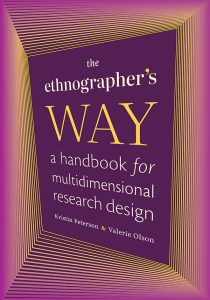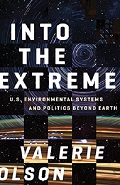My projects are about perceiving how contemporary systems and conceptual frameworks are being made – and how they could be made differently.
 |
Research Design (with Kris Peterson)The Ethnographer’s Way teaches new techniques, modes of perception, and collective exercises to foster intuitive multidimensional ethnographic research design. This project is the result of eight years of co-teaching research design and methods. However, it is not another methods book. It focuses on the often invisible but potentially transformative social and intellectual process of beginning research project: namely, the journey of imagining, conceptualizing, and operationalizing your objectives. Check out our introduction on the Duke University Press website. |
 |
Political SystematicityThe “system” concept used to be a descriptor of clear or amorphous connections between natural and made things. Now “system” is the preferred word to describe human biological, social, and political spaces. Given the global primacy of social media systems to financial ecosystems to AI systems. It’s time to ask: are “systems” becoming political forms that overpower and endanger other forms of relating and belonging? My work on the ecosystem concept – in aerospace science and the U.S. Gulf of Mexico – calls attention to the increasing significance of systems-centered national policy, geopolitics, and political economies. |
 |
Solar Eco/SystemBased on seven years of fieldwork within U.S. space agency institutions and fieldsites, Into the Extreme: U.S. Environmental Systems and Politics Beyond Earth (University of Minnesota Press 2018) follows how U.S. government sponsored human spaceflight works with outer space as environmental space. It examines places on Earth where engineers, industrial designers, life scientists, and astronauts turn the solar system into an ecosystem, where “eco” encompasses ecology and economy. These projects create “systemic” processes and technologies – including biomedical research, resource prospecting, and asteroid impact prevention – that relate space and Earth in new ways. These connections extend modes of systemic thinking and environmental imagination as well as forms of spatial and political control. As spaceflight programs produce “extreme environment” operations that extend from outlying Earthly sites into space, extraterrestrial outer spaces become increasingly governable and exploitable. |
 |
Watershed-as-EcosystemThis ongoing investigation examines the politics of chemotechnology in contemporary U.S. water management. Based in the Santa Ana watershed in Southern California, the project examines how “watershed systems” are governed as sites of combined chemo + techno dynamics rather than as spaces or things. It focuses specifically on the ways water is treated as a chemical rather than as an elemental agent, on the spatialization of water chemistries, the increasing automated management of water composition and encachement, and on the shifting gendered and racial dimensions of government and private water technics. |
Problems in Theory and MethodMy ongoing interest in systems as cultural concepts and in multidimensional ethnography has inspired two theoretical concerns. First: how can anthropologists collect data on and theorize the various relationships people have with spaces and things that they don’t directly experience? To this end, I am working with colleagues and students to develop a “critical systems studies” approach to the contemporary analysis of systems as ethnographic objects. Second: how can anthropology better account for the category of the non-living? I am specifically interested in the extent to which a focus on life, vitality, and qualities of livingness foreclose possible kinds of investigation and interpretation. How can we as living beings engage in an anthropology of the nonliving which does not default to vitalist or biocentric conceptualizations? |